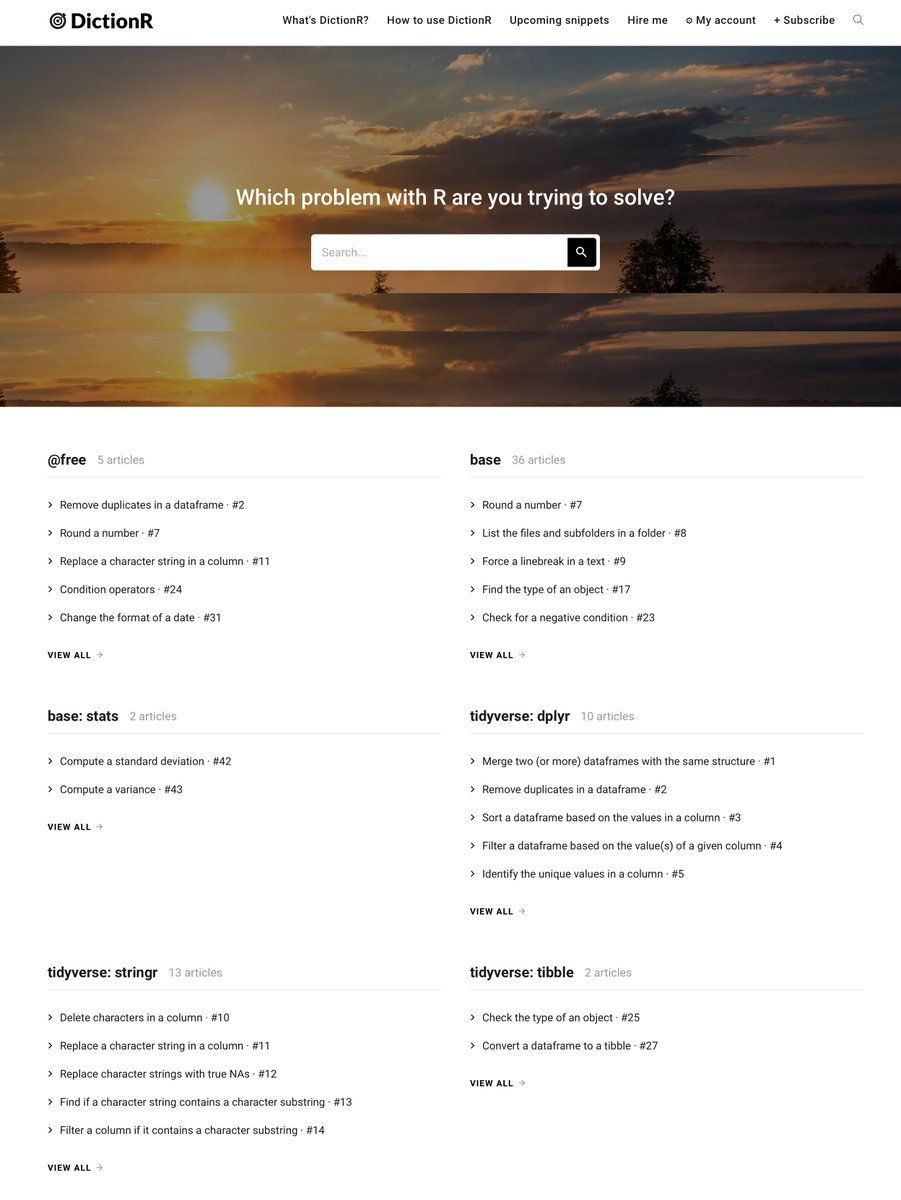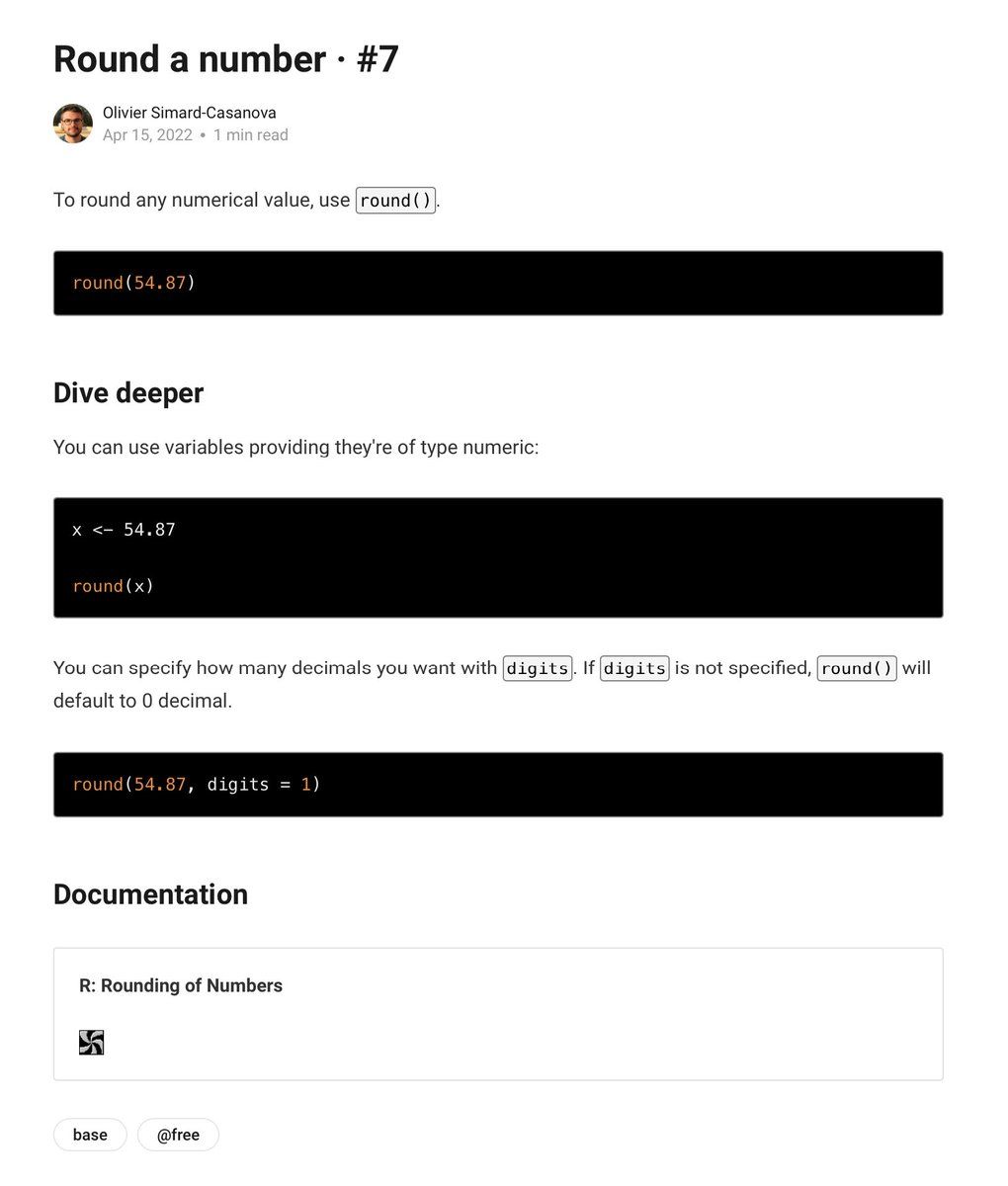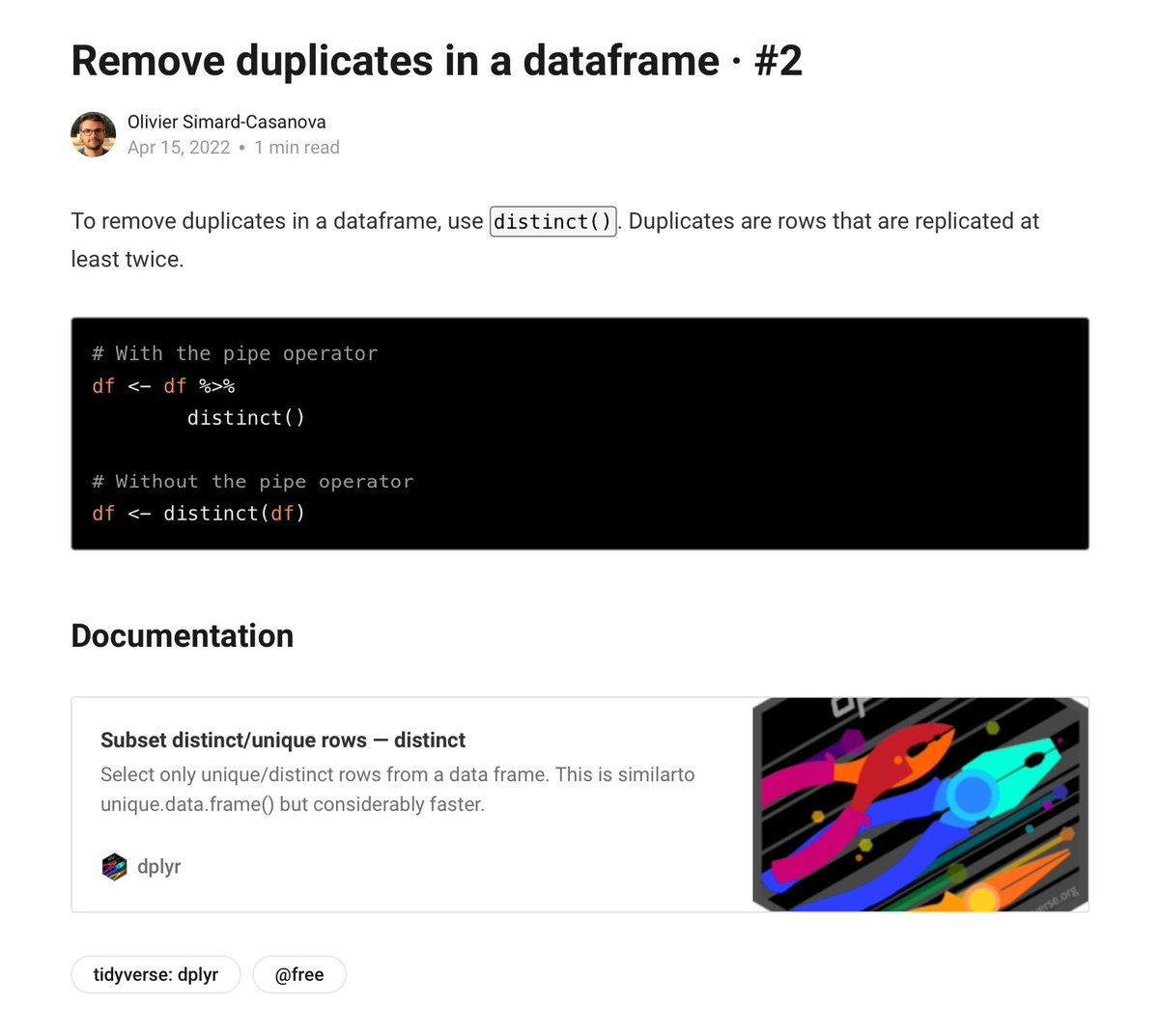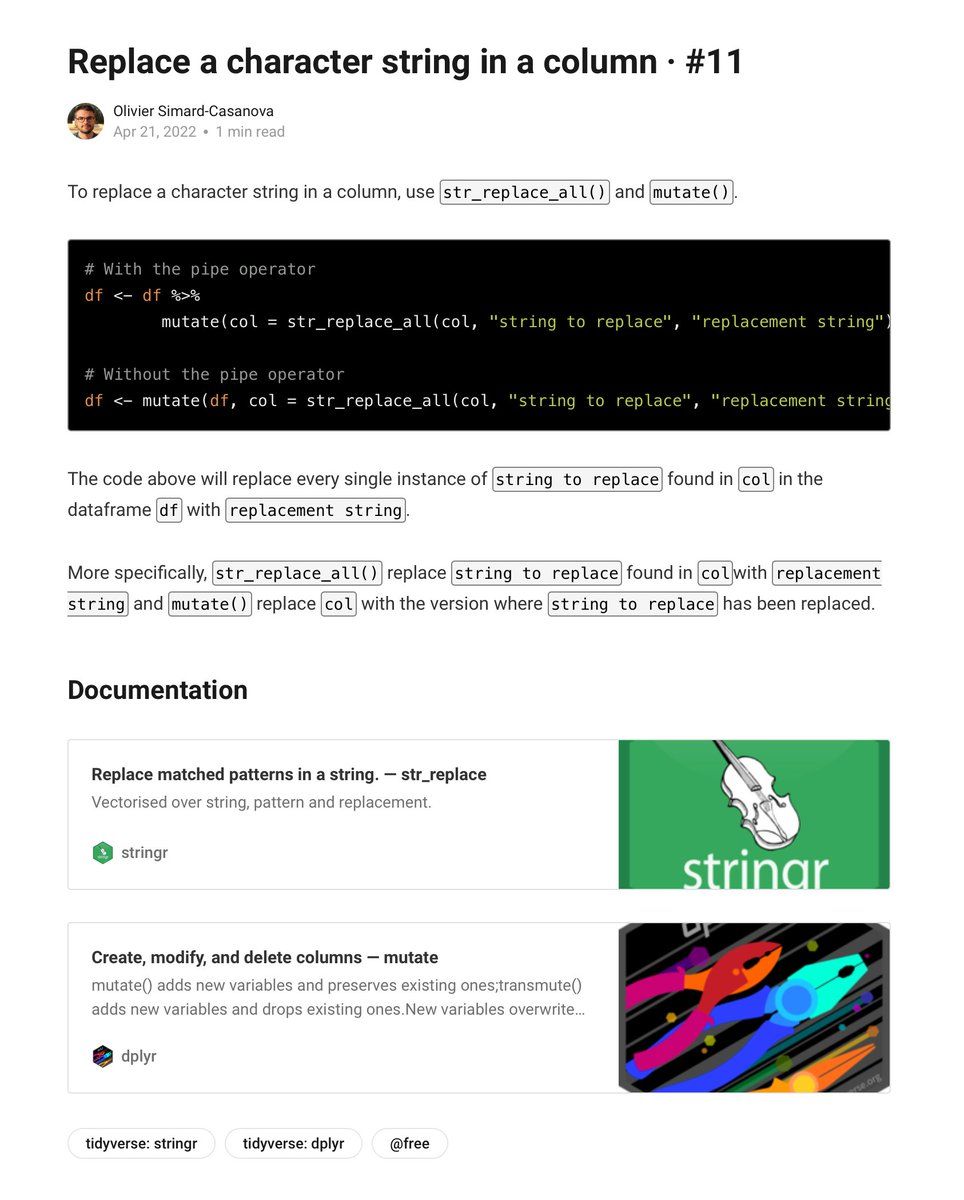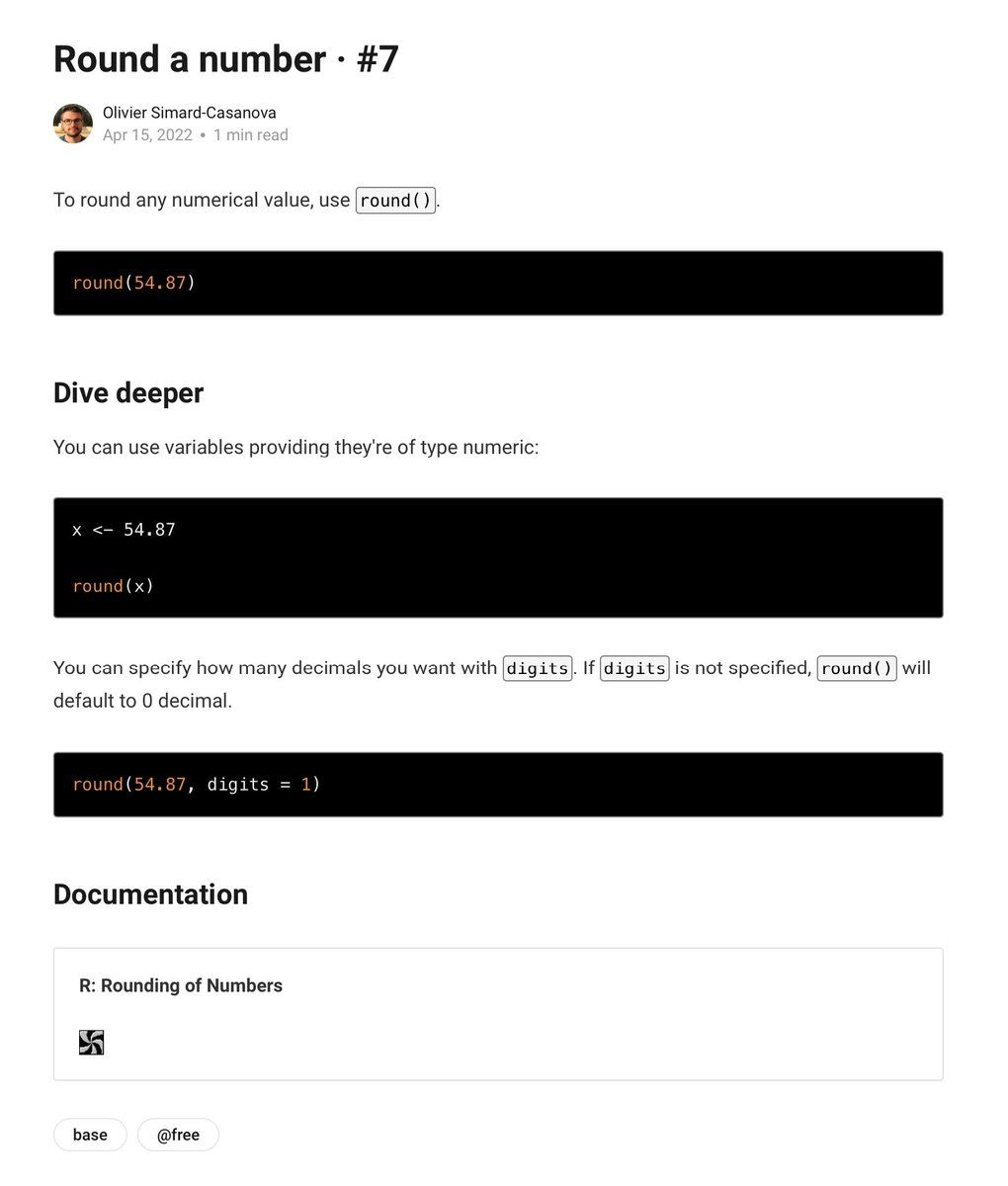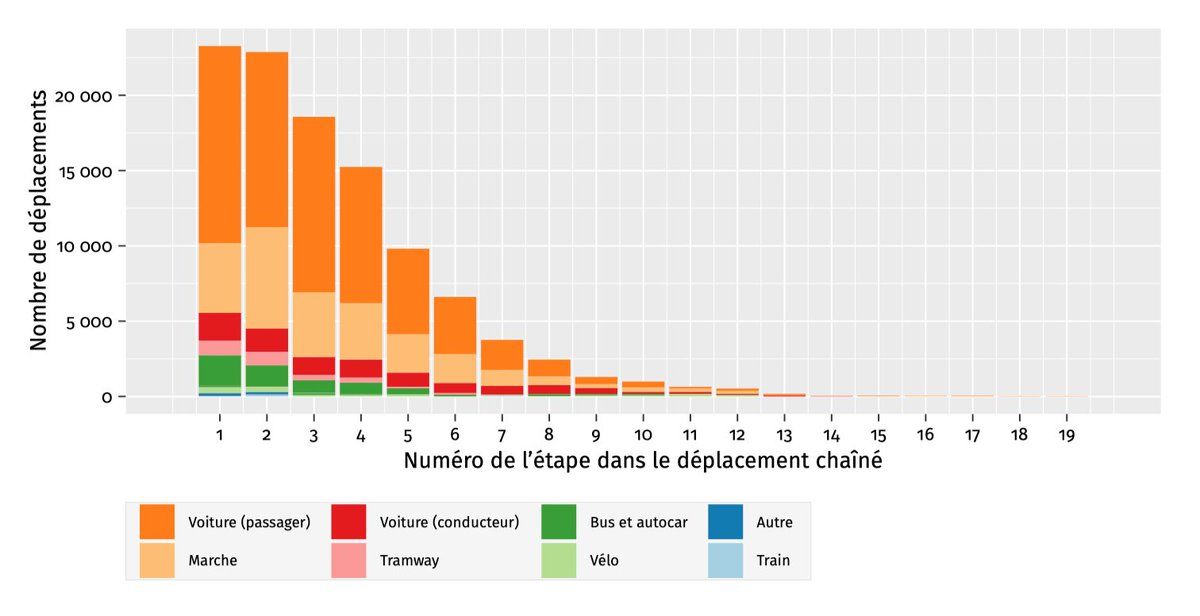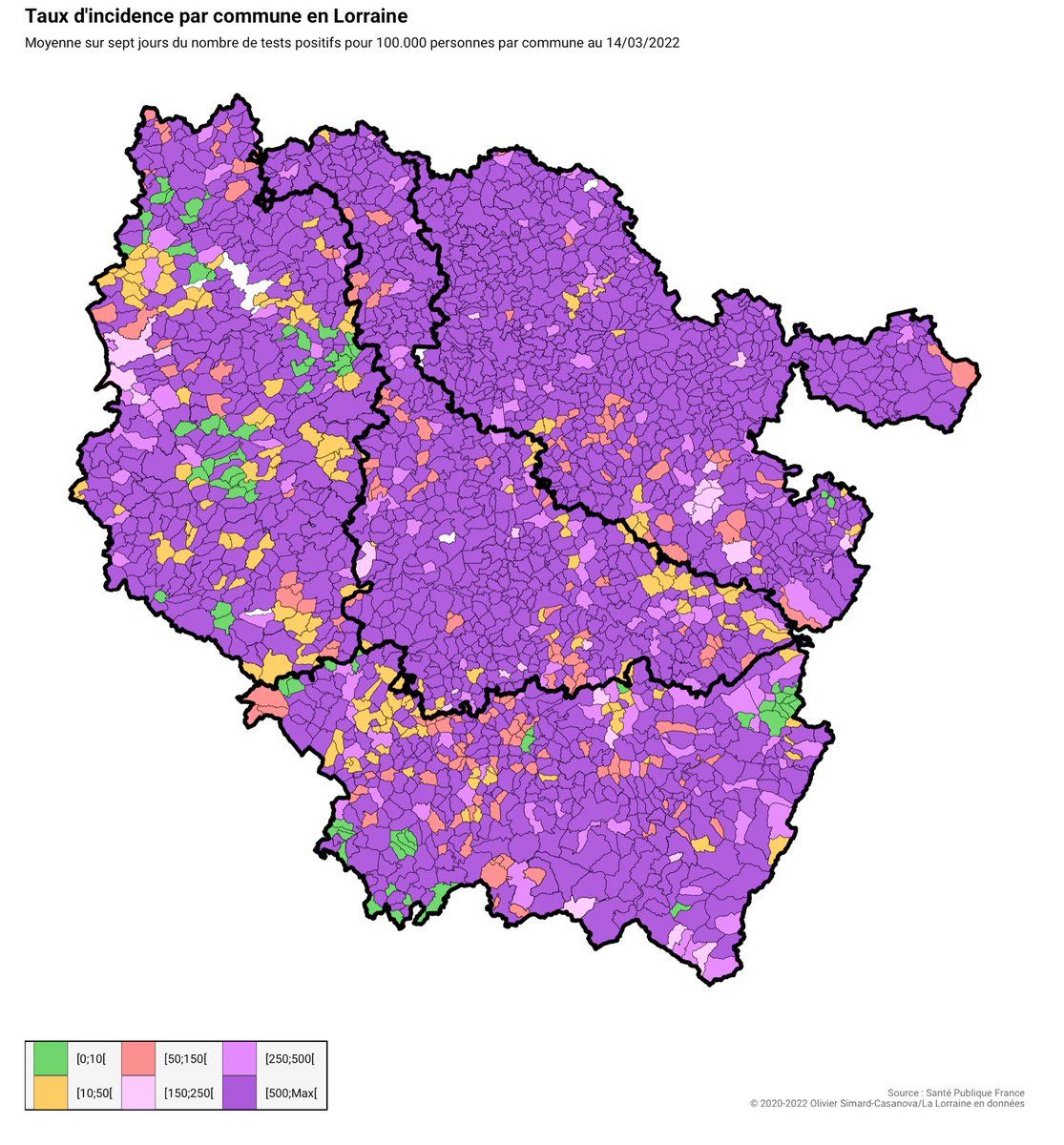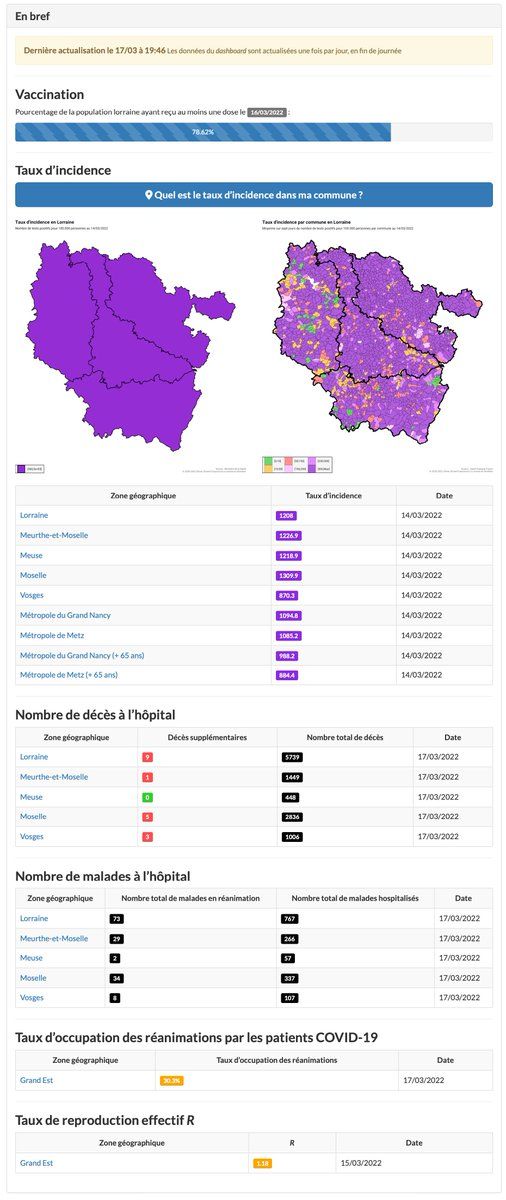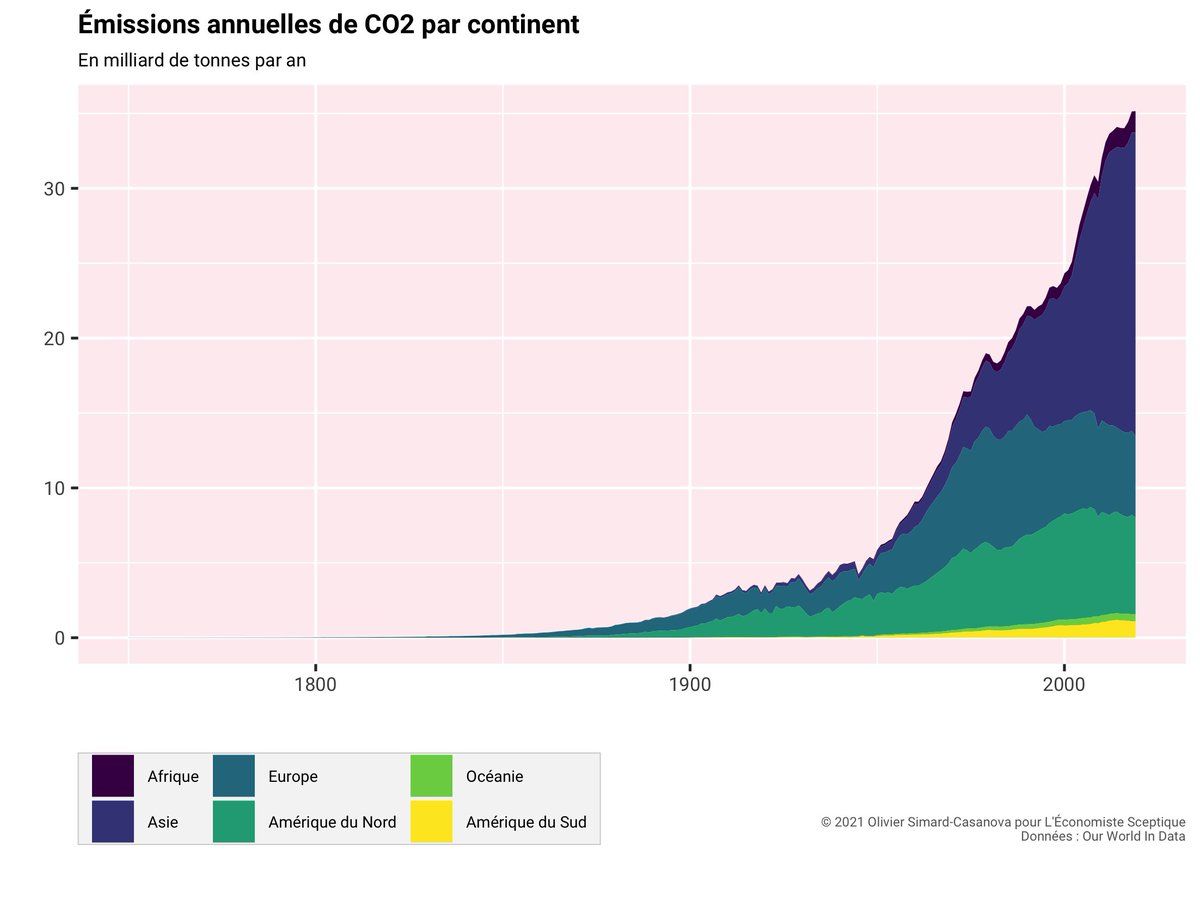-
Hi friends! Some (major!) professional news: I'm launching my first product ever today! If you regularly write R code (or plan to) you'll be interested 👀 This product is called DictionR and is here to save you a ton of time Let me explain 🧵 dictionr.aleryon.science/about/ 1/20
-
So what's DictionR exactly? DictionR is a website centralising a curated collection of R code snippets Snippets are small chunks of code you can reuse almost as-is for simple & not-so-simple tasks DictionR is useful for beginners & experienced R users — I use it myself! 3/20
-
Here are some examples of snippets: - Round a number: dictionr.aleryon.science/round-number/ - Format a date: dictionr.aleryon.science/change-format-date/ - Remove duplicates: dictionr.aleryon.science/remove-duplicates-dataframe/ - Conditions: dictionr.aleryon.science/condition-operators/ - Replace strings: dictionr.aleryon.science/replace-string-column/ And some screenshots ⤵️ 4/20
-
So how does DictionR cut the time you spend googling for solutions? Instead of endlessly googling for half-satisfying solutions in ugly websites written for bots instead of human eyes, you can now search and browse a central repository! 5/20
-
As you can see above, DictionR snippets are written in plain English Which means that you don't need to know the technical jargon to have a shot at finding a solution It's way more efficient than the usual way of looking at the documentation or googling out of the blue 6/20
-
Each snippet has its page with a clean presentation, a "Dive deeper" section for more advanced uses and link to its documentation Snippets are simple but you aren't limited if you need more power See for yourself here ➡️ dictionr.aleryon.science/round-number/ Or in the screenshot ⤵️ 7/20
-
DictionR massively cuts the time spent to learn R — by passing to you the trial-and-error learning I had to go through Albeit not a tutorial for beginners (I'd recommend a basic knowledge of R to use DictionR), DictionR centralizes the knowledge I accumulated since 2014 8/20
-
Thanks to its centralized nature, DictionR is good at discoverability & serendipity It helps you discover new functions & tools you had no idea existed It sure helps flatten R's learning curve, but it also helps more experienced R users to do even more things with R 9/20
-
To help you easily find what you're looking for I put extra effort into neatly organizing DictionR The libraries you need to load to make a snippet works are clearly indicated And to make things predictable I carefully crafted several conventions dictionr.aleryon.science/docs/ 10/20
-
All snippets are consistent with each others and rely on the same set of assumptions With DictionR, you won't find yourself hitting odd bugs, loading a ton of libraries you don't really understand the purpose of — and so on The code syntax is also consistent 11/20
-
Now let's talk about the price As you may know, during the pandemic I transitioned out of academia and went for a career as a self-employed economist/data scientist So I need money for my private jet 👀 (or more realistically, for my rent and for my food) 13/20
-
DictionR has a launch price of 154$/year — saving you a massive 300$/year compared to the final price of 454$/year 🔥 If you subscribe now, you'll keep this launch price for as long as you'll stay subscribed — and yes you'll keep the price even after the price increases! 14/20
-
Under which circumstances is DictionR profitable for you? Think in terms of opportunity costs DictionR is profitable as long as it helps you save as low as two hours *per year* — which it definitely will 15/20
-
Having a subscription-based model will help me not only maintain DictionR — but also regularly expand the set of available snippets 58 snippets are already available — and *hundreds* more are on my pipeline, many coming very soon dictionr.aleryon.science/upcoming/ 16/20
-
By subscribing to DictionR you will: ☑️ Gain instant access to all current and future snippets ☑️ Save a ton of time writing R code and learning R ☑️ Enjoy (and keep!) the preferred launch price ☑️ Support an independent, self-employed economist and data scientist 17/20
-
To subscribe to DictionR you just need to click right here ➡️ dictionr.aleryon.science/about/#/portal/signup And if you need more details, you can find them right there ➡️ dictionr.aleryon.science/about/ If you have any question just drop a reply to this thread! 18/20
-
(For those of you interested in these things, DictionR runs on a @Ghost instance hosted on @digitalocean. I use KaTeX for the mathematical rendering, highlight.js for the code block syntax coloring and @PlausibleHQ to track the traffic. Simple, extremely fast & powerful!) 19/20
-
I hope you'll find DictionR as useful as I do! You can follow me @simardcasanova and my company's account @AleryonScience for more — incl. tweets announcing new snippets I'd really appreciate if you can like/RT the first tweet below to help spread the word ⤵️ Thanks! 20/20 @simardcasanova/1522176829074812928
